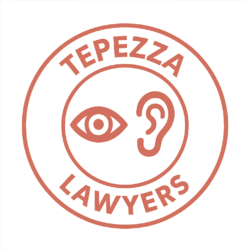North Carolina Tepezza lawyers claim hearing loss in lawsuits for thyroid eye settlement.

North Carolina Tepezza Lawyers for Hearing Loss Claims
Charlotte · Raleigh · Durham · Greensboro
Call Now: (888) 510-9210
Hotline Open 24 Hours
Our North Carolina Tepezza lawyers represent thyroid eye disease (TED) patients suffering from hearing impairment. North Carolina Tepezza lawsuits claim the TED drugmaker Horizon Therapeutics USA Inc. failed to warn patients of the risks of hearing loss, deafness or tinnitus.
As such, North Carolina Tepezza patients diagnosed with hearing problems may be eligible to claim a cash settlement.
Thyroid Eye Drug Caused Hearing Loss or Tinnitus?
Our team of attorneys have represented thousands of victims of dangerous prescription drugs. In doing so, we have recovered millions of dollars in settlement funds on their behalf.
However, we only pursue hearing impairment compensation from Tepezza manufacturers and their affiliates, and do not file claims against our clients’ doctors or hospitals.
No Legal Fee Unless You Obtain a Settlement
While compensation may be available to qualified thyroid eye claimants, victims are urged to act promptly. The #1 claim North Carolina Tepezza patients can make for hearing loss compensation is one that is filed within the Statute of Limitations time period. Click here for the latest information on the Tepezza multi-district litigation.
Our North Carolina Tepezza lawyers are available to review claims now. We offer a free case evaluation to confirm use of Tepezza and diagnosis of a related hearing problem. Further, we never charge a legal fee unless a financial recovery is obtained for our client.
Contact our North Carolina Tepezza lawyers today.
Charlotte NC Tepezza Lawsuits for Hearing Impairment Settlement
Tepezza (teprotumumab) is a medication approved by the U.S. Food and Drug Administration (FDA) in 2020 for the treatment of Thyroid Eye Disease (TED). Also known as Graves disease, TED is a condition that causes inflammation and swelling behind the eyes. The disease is often associated with thyroid problems.
Symptoms of thyroid eye disease include proptosis (bulging eyes), double vision, and pain. While Tepezza has been celebrated for its effectiveness in relieving these symptoms, Charlotte NC hearing loss lawyers claim its side effects include deafness and tinnitus.
Click here to view Tepezza drug safety information published by the FDA.
Thyroid eye drug made you hard of hearing?
Tepezza is a fully human monoclonal antibody that targets the insulin-like growth factor 1 receptor (IGF-1R), which is implicated in the pathogenesis of TED. By inhibiting IGF-1R, it reduces inflammation, autoimmunity, and tissue expansion behind the eye, thus alleviating the symptoms of TED.
The exact mechanisms by which Tepezza impacts IGF-1R and leads to therapeutic outcomes in TED patients involve modulation of the immune system and possibly direct effects on the tissues around the eyes. Charlotte NC Tepezza lawsuits are investigating the connection between blood flow regulation and hearing loss or ringing in the ears.
Ear Anatomy Justifies Settlement for Deaf Raleigh NC Tepezza Patients
North Carolina Tepezza lawsuits highlight the intricacies of the human ear. The ear is a complex organ that converts sound waves in the air into electrical signals that the brain can interpret. It is divided into three main sections: the outer ear, the middle ear, and the inner ear.
- Outer Ear: The visible part of the ear (pinna) and the ear canal comprise the outer ear. The pinna captures sound waves and funnels them through the ear canal to the eardrum (tympanic membrane).
- Middle Ear: The middle ear contains three small bones (ossicles) named the malleus, incus, and stapes, often referred to as the hammer, anvil, and stirrup, respectively. The vibration of the eardrum caused by sound waves moves these bones, amplifying the vibrations and transmitting them to the inner ear. Raleigh NC graves disease lawyers claim Tepezza effectively short circuits the ear’s ability to transmit sound waves in this way.
- Inner Ear: The inner ear houses the cochlea, a spiral-shaped, fluid-filled tube. Inside the cochlea are tiny hair cells that move in response to the fluid’s vibrations. This movement converts mechanical energy into electrical signals, which are then sent to the brain via the auditory nerve. The brain interprets these signals as sound. However, a Raleigh Tepezza lawsuit can claim the drug inhibits proper ear signal transmission, entitling thyroid eye patients to financial compensation.

Blood Pressure Affecting Your Eyes & Ears?
- IGF-1R Signaling in the Ear: IGF-1R plays a role in the development and maintenance of the inner ear. It is involved in the survival of cochlear hair cells and auditory neurons, which are critical for normal hearing function. Therefore, North Carolina Tepezza lawsuits can claim that inhibiting IGF-1R disrupts the normal functioning or survival of these cells, leading to hearing loss or tinnitus.
- Inflammatory Response: While Tepezza reduces inflammation in the tissues behind the eye, its effect on the body’s immune response could inadvertently affect the inner ear. The inner ear is highly sensitive to changes in immune activity, and North Carolina graves disease attorneys suggest any disruption could lead to symptoms of hearing loss or tinnitus.
- Vascular Changes: IGF-1R regulates vascular endothelial function. Our Raleigh Tepezza lawyer argues that inhibiting this receptor in TED patients could lead to changes in blood flow to the cochlea, affecting its function and causing auditory symptoms.
Durham NC Thyroid Eye Attorneys Claim Tepezza Made People Lose Their Hearing
Hearing loss, also known as hearing impairment, is a partial or total inability to hear. It can affect one or both ears and can occur gradually over time or suddenly. Hearing loss is one of the most common conditions affecting older adults, but it can impact individuals at any age. As the damages phase of a North Carolina Tepezza lawsuit will highlight, hearing loss or deafness can significantly affect the quality of life in Durham. Hearing impairment makes communication difficult, leading to isolation, and impacting overall well-being.
Hearing loss is categorized into three main types, based on where in the ear the problem occurs:
- Conductive Hearing Loss: Occurs when sounds cannot efficiently pass through the outer and middle ear to the inner ear. Causes include ear infections, fluid in the middle ear, earwax blockage, and abnormalities in the ear structure.
- Sensorineural Hearing Loss (SNHL): Results from damage to the inner ear (cochlea) or the auditory nerve, affecting the transmission of electrical signals to the brain. Causes include aging, exposure to loud noise, head injuries, certain medications, and genetic factors. Durham NC Tepezza class action style claims assert the thyroid eye drugmaker’s failure to warn of hearing loss justifies a settlement for those going deaf.
- Mixed Hearing Loss: A combination of conductive and sensorineural hearing loss, indicating problems in both the outer/middle ear and the inner ear.
Diagnosing Tepezza/TED Hearing Loss in Charlotte NC
Diagnosis of hearing loss in North Carolina involves a thorough medical history and a series of auditory tests typically performed by an audiologist. These tests can include:
- Pure-Tone Testing: Determines the faintest tones a person can hear at various pitches, helping to map out the extent and type of hearing loss.
- Speech Testing: Assesses the individual’s ability to hear and understand speech at different volumes.
- Tympanometry: Measures how the eardrum responds to changes in air pressure, indicating issues in the middle ear. Charlotte NC Tepezza lawyers will frequently include these test results as an evidentiary exhibit in a hearing loss settlement claim.
- Auditory Brainstem Response (ABR): Measures how the auditory nerve and brainstem respond to sound, checking for sensorineural hearing loss. Charlotte Tepezza settlement payment amounts can vary based on the magnitude of the auditory brainstem response.
Treating Tepezza/TED Deafness in Raleigh NC
While some forms of hearing loss can be treated, most cases, particularly sensorineural hearing loss, have no cure. Treatment and management options include:
- Hearing Aids: Electronic devices worn in or behind the ear, amplifying sound for the user. They are the most common treatment for hearing loss.
- Cochlear Implants: Used in severe cases, especially where hearing aids are not effective. These devices bypass damaged parts of the ear and directly stimulate the auditory nerve.
- Assistive Listening Devices (ALDs): Include specialized telephones and amplifiers that help individuals hear more clearly in various settings.
- Surgical Procedures: Can correct some types of conductive hearing loss, such as those caused by otosclerosis or chronic ear infections.
Raleigh NC Tepezza customers in need of financial assistance to pay for hearing treatment may be able to file a claim in the multi-district litigation.
Advancements in technology and medicine are continuously improving the diagnosis, treatment, and management of hearing loss. Research is focused on regenerating damaged hair cells in the cochlea, gene therapy to correct hereditary forms of hearing loss, and enhancing the performance of hearing aids and cochlear implants. To explore your legal options, talk to a North Carolina Tepezza lawyer about filing a hearing loss compensation claim.
Although many forms of hearing loss cannot be cured, anticipated advances offer hope for better management and future treatments. Early detection and intervention are key to minimizing the impact of hearing loss on quality of life, highlighting the importance of regular hearing screenings and awareness of the signs of hearing impairment.
We file Tepezza Settlement Claims in North Carolina and across the United States
- Charlotte, NC
- Raleigh, NC
- Greensboro, NC
- Winston-Salem, NC
- Durham, NC
- Fayetteville, NC
- Cary, NC
- Wilmington, NC
- High Point, NC
- Greenville, NC
- Asheville, NC
- Concord, NC
- Gastonia, NC
- Jacksonville, NC
- Apex, NC
- Chapel Hill, NC
- Huntersville, NC
- Burlington, NC
- Rocky Mount, NC
- Kannapolis, NC
- Wilson, NC
- Wake Forest, NC
- Hickory, NC
- Indian Trail, NC
- Holly Springs, NC
- Mooresville, NC
- Monroe, NC
- Salisbury, NC
- Matthews, NC
- Fuquay-Varina, NC
- Goldsboro, NC
- Cornelius, NC
- Morrisville, NC
- Sanford, NC
- Garner, NC
- New Bern, NC

Greensboro NC Graves Disease Lawyer Claims Tinnitus Merits Tepezza Settlement
Our Greensboro NC Tepezza attorney is investigating a link between the popular thyroid eye drug and the onset of tinnitus.
Tinnitus is a common condition characterized by the perception of noise or ringing in the ears when no external sound is present. It can affect anyone, but is particularly prevalent among the elderly and those exposed to loud noise environments.
Tinnitus is often described as ringing, buzzing, clicking, or hissing, though the specific perception varies widely among individuals.
Types of Tinnitus
North Carolina Tepezza lawyers note that tinnitus can be classified into two main types: subjective and objective. Subjective tinnitus, the more common form, is audible only to the affected individual and can be caused by a range of conditions affecting the outer, middle, or inner ear, as well as the auditory nerves or pathways. Objective tinnitus, which is rare, can be heard by an examiner and may be caused by vascular anomalies, muscle contractions, or other physical conditions.
Causes of Tinnitus
The exact cause of tinnitus is often difficult to determine, but it is commonly associated with:
- Hearing loss, particularly age-related (presbycusis) and noise-induced hearing loss.
- Ear and sinus infections.
- Diseases of the heart or blood vessels.
- Meniere’s disease.
- Brain tumors or other neurological disorders.
- Hormonal changes in women.
- Ototoxic medications that damage the inner ear.
- Exposure to loud noises from music, machinery, explosions, etc.
Risk factors for tinnitus include advanced age, smoking, cardiovascular problems, and occupations or activities that expose individuals to loud noise.
Mechanisms Behind Tinnitus
Tinnitus may result from the brain’s attempt to compensate for the loss of auditory input due to damage to the cochlea or auditory pathways, leading to an overemphasis of certain frequencies as the brain “fills in” missing auditory information. This process involves neuroplastic changes in both the auditory and central nervous systems.
Further, maladaptive neuroplasticity, where the brain incorrectly adjusts to hearing loss, can create the perception of sound where there is none. Changes in the neurotransmitter systems within the auditory pathways may also play a role in the development of tinnitus.
Our Greensboro NC tinnitus lawyers scrutinize Tepezza patients’ medical records on a case-by-case basis to identify links to their hearing problems. Upon obtaining a proper medical diagnosis, a demand for compensation may be filed in court.
Diagnosing & Treating TED Tinnitus in North Carolina
Diagnosing tinnitus involves a thorough medical history, physical examination, and a series of tests to rule out underlying conditions. Audiological exams are crucial for assessing hearing loss. Doctors may use imaging tests, such as MRI or CT scans, to identify structural issues that contribute to tinnitus. Specialized tests, like otoacoustic emissions (OAE) and auditory brainstem response (ABR), can also help in understanding the tinnitus’s origin. North Carolina Tepezza settlement lawyers will rely on this diagnostic testing in claiming financial compensation for tinnitus.
Management of Tepezza-Induced Tinnitus with Hearing Aids & Therapy
While there is no cure for most thyroid eye patients diagnosed with Tepezza-associated tinnitus, several management strategies are widely used across North Carolina.
- Sound Therapy: Using external sounds to partially mask tinnitus or teach the brain to ignore the unwanted noise.
- Hearing Aids: Especially helpful if tinnitus is accompanied by hearing loss.
- Cognitive Behavioral Therapy (CBT): Aims to change the way patients perceive and react to tinnitus, reducing distress.
- Tinnitus Retraining Therapy (TRT): Combines counseling and sound therapy to retrain how the brain responds to tinnitus.
- Medications: While no drugs directly treat tinnitus, some, like antidepressants or antianxiety medications, can alleviate the stress related to tinnitus.
North Carolina thyroid eye patients in need of financial assistance to pay for hearing aids or therapy are urged to consult an attorney about filing a claim in the nationwide Tepezza litigation.
Further, current research on tinnitus is exploring the development of more targeted therapies that address the neural basis of tinnitus, gene therapy, and the use of neuromodulation techniques to directly alter brain activity associated with tinnitus. North Carolina tinnitus lawsuits hope to advance understanding of how Tepezza interacts with these genetic factors and neuroplastic changes, leading to more effective treatments.
North Carolina Tepezza Lawsuit Settlements to Compensate Hearing Damage
Claims of hearing loss and tinnitus in North Carolina Tepezza lawsuits have led to increased scrutiny of the drug’s safety profile. Clinical trials and post-marketing surveillance have documented cases of auditory side effects, but the incidence rate and the causal relationship remain areas of active investigation.
Our North Carolina Tepezza settlement lawyers are monitoring studies to better understand the prevalence, severity, and mechanisms behind these side effects. The studies involve careful examination of patient reports, audiometric testing to quantify hearing loss, and analysis of the timing of symptom onset relative to treatment with thyroid eye medication.
Lost your hearing after taking Tepezza?
For patients receiving Tepezza, healthcare providers recommend monitoring for signs of hearing impairment or tinnitus. This monitoring might include baseline and periodic audiometric evaluations, especially for those who report auditory symptoms during treatment. North Carolina Tepezza claims show early detection of hearing changes may allow for timely interventions, including adjusting the TED treatment regimen or consulting with an audiologist or otolaryngologist for management strategies.
Tepezza represents a significant advancement in the treatment of Thyroid Eye Disease, offering hope to many patients suffering from this debilitating condition. However, Raleigh NC hearing loss and tinnitus lawsuits highlight the importance of understanding the broader impact of Tepezza on a TED patient’s body. Ongoing research is crucial to elucidate the mechanisms by which the drug affects the auditory system and to develop strategies to mitigate these side effects. For patients and healthcare providers, balancing the benefits of Tepezza against the risk of auditory side effects is a critical component of managing TED. Awareness, monitoring, and early intervention are key to ensuring the best possible outcomes for patients undergoing treatment with Tepezza.
Contact our North Carolina Tepezza lawyers for a free hearing loss claim review.

